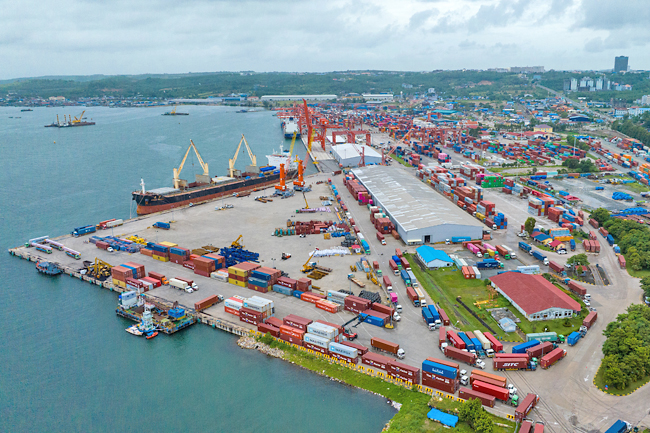XINHUA – Cambodia’s international trade volume hit USD54.74 billion in 2024, up 16.9 per cent from USD46.82 billion in the year before, said an official report released recently.
The kingdom’s total export amounted to almost USD26.2 billion last year, up 15.7 per cent year-on-year, as its total import reached USD28.54 billion, up 18 per cent, according to the General Department of Customs and Excise’s report.
The Southeast Asian country’s top five trading partners are China, the United States, Vietnam, Thailand, and Japan, the report said.
Main exported goods included garments, footwear, and travel goods, bicycles, car tyres, and potential agricultural produce such as rice, rubber, cassava, bananas, mangoes, and longans, the report said, adding that key imported items included petroleum, vehicles, machinery, construction materials, electronic appliances, and consuming products, among others.
Ministry of Commerce’s Secretary of State and Spokesperson Penn Sovicheat said the Regional Comprehensive Economic Partnership (RCEP) and Cambodia’s bilateral free trade agreements (FTAs) with China, South Korea, and the United Arab Emirates had injected vigorous impetus into Cambodia’s trade growth.

“These regional and bilateral FTAs have served as a catalyst for our long-term and sustainable trade growth,” he told Xinhua.
“They are also a magnet to attract more foreign direct investments to Cambodia.”
Effective from January 1, 2022, the RCEP comprises 15 Asia-Pacific countries including 10 ASEAN member states – Brunei, Cambodia, Indonesia, Laos, Malaysia, Myanmar, the Philippines, Singapore, Thailand and Vietnam – and their five trading partners, namely China, Japan, South Korea, Australia and New Zealand.
“With preferential tariffs offered under the RCEP, Cambodia’s exports to other RCEP members will definitely continue to grow in coming months and years,” Sovicheat said.
Director of the international economics department at the International Relations Institute of Cambodia under the Royal Academy of Cambodia Hong Vanak said RCEP and other FTAs have played a crucial role in supporting Cambodia’s sustainable trade and economic growth in the long run.
“These free trade pacts have provided Cambodia’s products with access to a huge market of approximately 2.3 billion people,” he told Xinhua.
Lecturer at the Institute for International Studies and Public Policy of the Royal University of Phnom Penh Thong Mengdavid said RCEP is a model for multilateralism and free trade. “In an era marked by rising protectionism and geopolitical uncertainties, the RCEP has emerged as a beacon of multilateral cooperation,” he told Xinhua.
“RCEP, the world’s largest free trade agreement, has demonstrated its transformative potential in bolstering regional economic growth, enhancing trade liberalisation, and fostering deeper integration among its members,” he added.





